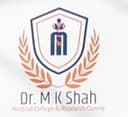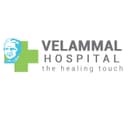Bachelor of Vocational (BVoc) in Radiology & Medical Imaging Technology
OR
Prepared by Docthub Courses Team ∣
Last updated on 25 Jul 2024
Overview
The Bachelor of Vocation in Radiology and Medical Imaging Technology is a specialized program that trains students in the field of medical imaging technology. It plays a crucial role in healthcare by using advanced imaging equipment to diagnose and monitor medical conditions.
Graduates of this program become well-equipped to contribute to the healthcare industry and make a difference in patient care through accurate and advanced medical imaging techniques.

Table of Content
What is a Bachelor of Vocation in Radiology & Medical Imaging Technology course?
Bachelor of Vocation in Radiology and Medical Imaging Technology is a 3 years undergraduate course for medical lab technologists. It focuses on creating pictures of the human body or its functions for medical purposes.
The program typically lasts three years, but the duration may vary. This course is job-oriented and essential for those interested in medical imaging.
It is available in various colleges and institutions' campuses, offering students a valuable opportunity to specialize in radiology and medical imaging technology.
Highlights
- Course Name: Bachelor of Vocation in Radiology & Medical Imaging Technology
- Commonly known as: B. Voc. in Radiology & Medical Imaging Technology
- Course Type: Degree
- Course Level: Bachelor
- Course Duration: 3 Years
- Eligibility: 10 + 2 in Science stream
- Course Fees: ₹1,20,000 - ₹2,00,000
Eligibility Criteria
To be eligible for the Radiology & Medical Imaging Technology (B.Voc) Bachelor in Vocational Education, students must meet the following criteria:
- Completed 12th grade from a recognized board.
- Obtained at least 50% marks in the 12th board examination.
- No physical disability or color blindness is allowed.
- Good catching power is required.
- Strong knowledge in various subjects is essential.
Who should do a Bachelor of Vocation in Radiology & Medical Imaging Technology course?
- The Bachelor of Vocation in Radiology and Medical Imaging Technology is perfect for students interested in medical imaging and becoming medical lab technologists.
- It suits science enthusiasts who want to use advanced imaging equipment for diagnosing medical conditions.
- If you seek a healthcare career with a focus on precision and patient care, this course is an excellent choice.
- For existing medical lab technicians, it offers career progression and specialization opportunities in radiology and medical imaging technology.
- This program provides a rewarding path for those passionate about technology and healthcare's impact on medical diagnostics.
Why study Bachelor of Vocation in Radiology & Medical Imaging Technology?
- Studying Bachelor of Vocation in Radiology & Medical Imaging Technology offers many great advantages. You get specialized skills in using advanced imaging equipment for medical purposes.
- With a growing demand for medical imaging professionals, there are numerous job opportunities in the healthcare field.
- As a medical lab technologist, you play a crucial role in diagnosing and monitoring medical conditions, contributing to patient care. The hands-on training and continuous learning in this dynamic field provide job satisfaction and room for professional growth.
- Additionally, you can expect promising salary packages and benefits, making it a rewarding career choice.
Admission Process
- To apply for the Bachelor of Vocation in Medical Imaging Technology program, you need to submit an application form along with the required documents and the application fee.
- Some institutes may consider academic performance and relevant work experience, if applicable, as part of the selection criteria.
- Make sure to check the specific admission requirements of the institute you are interested in to ensure a smooth application process.
Bachelor of Vocation in Radiology & Medical Imaging Technology Syllabus
| Semester 1 | Semester 2 |
| Basic Anatomy (Cross Sectional Anatomy-II) | Basic Imaging |
| Electronic Measurement and Instrumentation | Electronic Measurement and Instrumentation-II |
| Soldering & De-Soldering of Components | Soldering & De-Soldering of Components & Emergency Actions-II |
| Tools, Equipment & Safety Measures | Tools, Equipment & Safety Measures |
Practicals Basic Diagnostics Lab Identification of Components, Tools, Equipment, and it Working Lab | Practicals Basic Imaging Practical Lab Soldering & De-Soldering of Components Lab |
| Semester 3 | Semester 4 |
| Cross Sectional Anatomy | CT and Ultrasound |
| Electronics Devises Circuit | Electronics Devises Circuit-II |
| Fault Analysis & Repairs | Manufacturing & Quality Norms |
| Radiation and Administrative Issues | Practicals Electronics Devices Circuit - II Lab Manufacturing Practices |
Practicals Electronics Devices Circuits Lab Fault Analysis & Repairs Lab | - |
| Semester 5 | Semester 6 |
| Advanced Imaging | Admin, Medico-Legal, and Interventional Procedures |
| MRI, Image Processing, and Recording | Project Work |
Practicals Advanced Imaging Lab MRI, Image Processing, and Recording Lab | - |
Top Bachelor of Vocation in Radiology & Medical Imaging Technology Colleges
You can find top colleges for bachelor of vocation in radiology & medical imaging technology courses from Docthub.com, an online professional healthcare platform where you can apply directly for healthcare courses in top colleges in India.
Bachelor of Vocation in Radiology & Medical Imaging Technology Scope
- The scope for graduates of B.Voc. Radiology & Medical Imaging Technology is vast. They can pursue higher studies and specialize in specific domains through Masters programs.
- Besides, there are numerous career opportunities available in the fast-growing healthcare industry.
- Graduates can work in radio diagnostic facilities, and hospitals, or even become application specialists in medical imaging equipment companies.
- The salary package is excellent, and there are various job options, including working as a Mammography technician, and creating breast images using ionizing radiation.
- Completing this program opens up a world of possibilities and a rewarding career in the medical imaging field.
Career opportunities after Bachelor of Vocation in Radiology & Medical Imaging Technology
The career opportunities for graduates of the Bachelor of Vocation in Radiology & Medical Imaging Technology program are promising. They can find employment in hospitals, diagnostic centers, clinics, and research institutions. Various job roles are available, such as
- Radiologic Technologists
- Ultrasound Technicians
- MRI technologists
- CT technologists
- Nuclear Medicine Technologists
As medical technology advances, the demand for these professionals is expected to grow significantly in the future. This program opens up a wide range of rewarding and fulfilling career paths in the field of medical imaging.
Salary Prospects
The salary for graduates of the Bachelor of Vocation in Radiology & Medical Imaging Technology program can vary based on factors like job role, experience, and location.
On average, professionals in this field can earn competitive annual salaries ranging from approximately ₹2,50,000 to ₹6,00,000 or more, with the potential for higher earnings as they gain expertise and experience.
Explore colleges for this course
Quick Go Links

Explore this course by location..
by Cities
Related Job Roles
Related Job Vacancies
View All 114 Jobs

FAQS
What is the salary for B. Voc. Radiology and Imaging Technology in India?
The average salary of B. Voc. Radiology and Imaging Technology in India ranges between ₹2,50,000 to ₹6,00,000 or more.
What is a Bachelor of Vocational (B.Voc) in Radiology & Medical Imaging Technology?
A Bachelor of Vocational (B.Voc) in Radiology & Medical Imaging Technology is a bachelor's degree program focused on training students in the use of medical imaging techniques for diagnostic purposes.
What is the difference between B.Sc. Radiology and B. Voc. Radiology?
The main difference between B.Sc. Radiology and B.Voc. Radiology is that B.Sc. Radiology offers a broader theoretical foundation in radiology and medical imaging, while B.Voc. Radiology emphasizes practical skills and vocational training for direct employability in the field.
Which is better radiology or pharmacy?
The choice between radiology and pharmacy depends on students’ interests and career goals, as radiology involves medical imaging and diagnostics, while pharmacy focuses on medication and patient care.
What are the career prospects for graduates of the B.Voc. program in Radiology & Medical Imaging Technology?
Graduates of the B.Voc. program in Radiology & Medical Imaging Technology can pursue rewarding careers as Radiologic Technologists, Ultrasound Technicians, MRI Technologists, CT Technologists, and Nuclear Medicine Technologists in healthcare and diagnostic settings.
Related Course titles

Qualifications
12th Science PCB
Related Specialty
Biotechnology
Health Technology
Critical Care Technology
Radiology Technology




